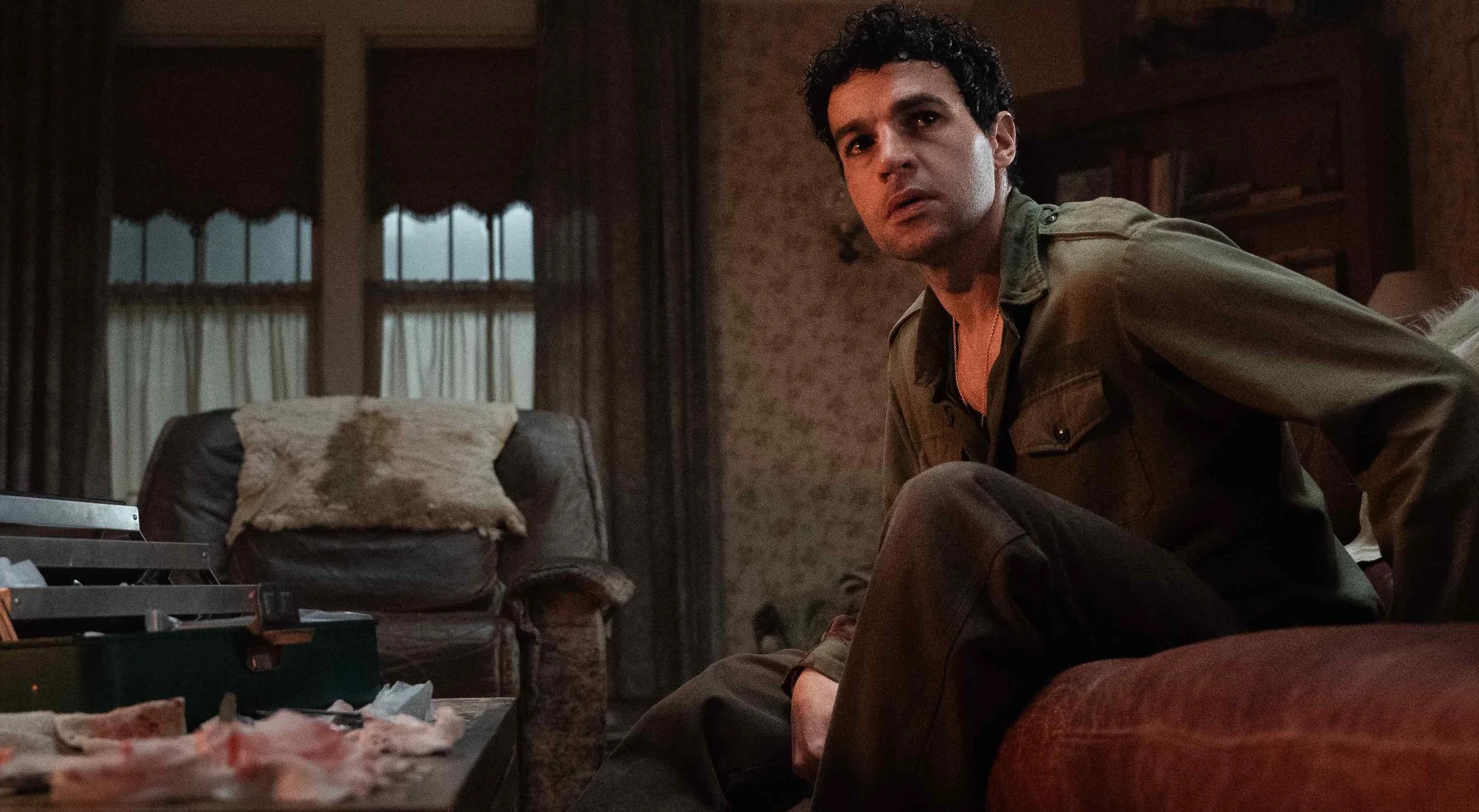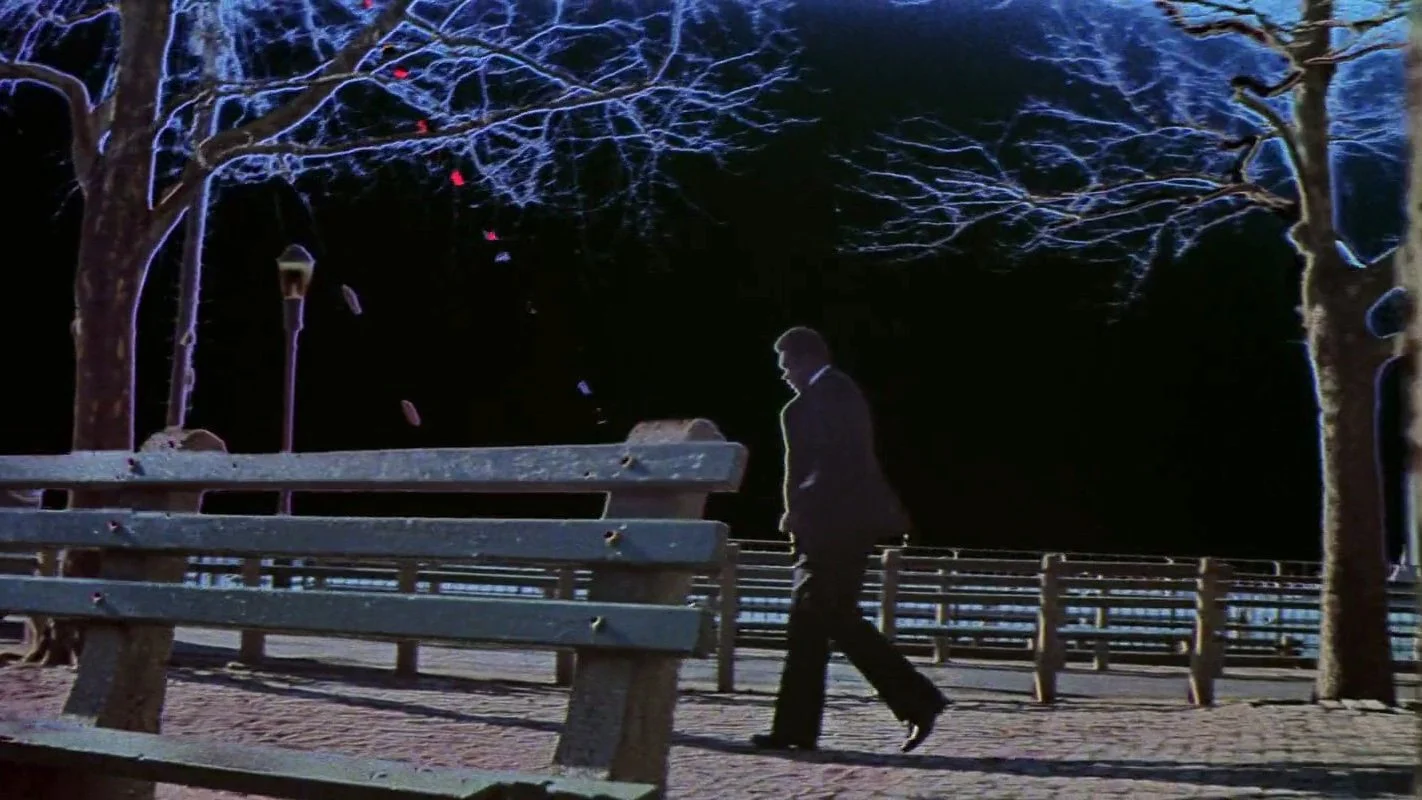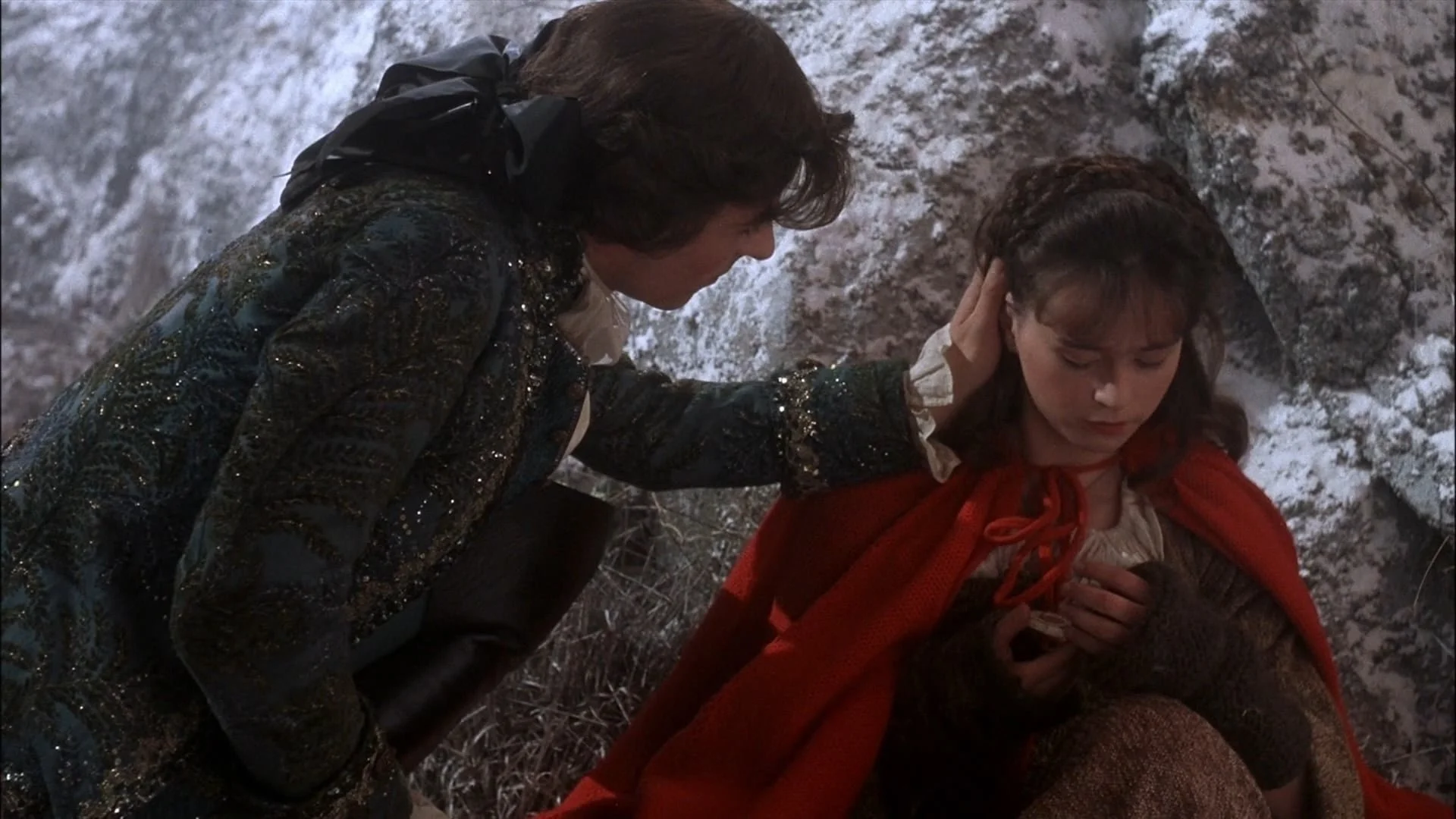A Bit Mangy
Whodathunk we’d miss tight close-ups of Elisabeth Moss’s quivering lower lip?
Wolf Man
Director: Leigh Whannell • Writers: Leigh Whannell, Corbett Tuck, based on the film by Curt Siodmak
Starring: Christopher Abbott, Julia Garner, Matilda Firth
USA • 1hr 43mins
Opens Hong Kong Jan 16 • IIB
Grade: B-
Here’s the thing: Leigh Whannell’s Wolf Man isn’t a werewolf movie in the traditional sense of the word. If you’re looking for full moons at which to howl, silver bullets and a goopy, hairy transformation set to CCR and Sam Cooke you’re not going to get them. Like he did in his superior re-imagining of The Invisible Man, which pivoted on an effortless and effective abusive partner metaphor, Wolf Man focuses on the psychological rather than the physical elements of the given lore. And that’s fine, but here’s another thing: Whannell and actor-turned-co-writer Corbett Tuck (her first scripting gig) want to examine so many psychologies they all get lost in the mix. This is as thematically dark and murky as most of the images – though the dark images ultimately have a point.
We all still know Whannell best for the endless Saw and Insidious franchises but he should be more recognisable for The Invisible Man as well as the underrated tech thriller Upgrade, and it should be stated that despite a lot of the muddle, Wolf Man does have its strengths. Whannell and third-time DOP Stefan Duscio’s (The Dry, Shantaram) use of negative space and, what to call it, night vision, and designer PK Hooker’s exploitation of sound – or lack of – go a fair way to creating the film’s oppressive tension and connecting us to the wolf man as the overburdened story runs through (deep breath) modern anxieties, generational trauma, cycles of violence men teach other men, crumbling marriages, familial disconnect and, finally, debilitating illness and where the fuck did that come from? It’s a lot, and it’s often too much.
Wolf Man is messy, but it kinda sorta gets better the farther you get from it. In a prologue we meet young Blake Lovell hunting with his clearly over-militarised father Grady (Sam Jaeger) in the Oregon (played here by New Zealand) woods when something unseen but breathing heavily and growling loudly scares them into a deer hut for the night. Thirty years later, grown-up Blake (Christopher Abbott, Poor Things, Kraven The Hunter) is a struggling writer in San Francisco, married to journalist Charlotte (Julia Garner, the forthcoming The Fantastic Four: First Steps, and allegedly Madonna in the planned Madonna biopic) and worried he’s beginning to raise his daughter Ginger (Matilda Firth) exactly the way he was raised: scolded often, treated like a solider, told there’s danger everywhere. When he gets a notice that Grady has been declared dead by the state, Blake asks Charlotte to take a few months off work, put on her best Pacific Northwest flannels and come to the old homestead in the middle-of-nowhere so they can reconnect as a family. Shit obviously goes sideways and the Lovells spend the night scurrying from farm structure to farm structure trying to avoid the thing that ran them off the road, scratched Blake and set him morphing into a dangerous beast. In a slow, sweaty, gluey sense-altering metamorphosis.
Wolf Man does lean into some of the common tenets of werewolf lore, chiefly the idea of a family curse, in this case a symbolic father-son link (think Teen Wolf, and even better in the femme Turning Red but that’s another story) that flirts with violence, as well as the fragile border separating humanity and civility from submission to dangerous primal instinct. But then there’s the sickness thread, which in truth is probably the most interesting and least hoary of the three. Blake’s slow deterioration into a non-verbal mess is nicely visualised by some good practical effects, clever in-camera effects and sound manipulation that gracefully make his increasing frailty (okay “frailty”, he is a werewolf) tangible – and it works both ways when Charlotte and Ginger try to communicate with him and fail miserably. Anyone who’s had experience with someone withering away will recognise the helplessness in it. But then the script toggles between the more clever spins on terminal illness and some genuinely astute observations of Charlotte’s fears of watching her daughter slip away emotionally thanks to her work, and genius dialogue like, “Come help me pack up the house and move his things, in a truck.” Is there another way one would move a houseful of things I don’t know about? Have I been moving wrong all these years? It takes you out of the moment, as does Charlotte’s character inconsistency, though Garner somehow manages to put meat on the bones, and Ginger’s single raison d’être. Some nonsense about reading Blake’s mind. It’s an “Aww” moment that falls flat because Ginger is flat and lacks Garner’s skill in finding something to latch onto. Still, a truly disarming atmosphere, some pretty gnarly body horror and Abbott’s committed performance make Wolf Man linger, and make it a tragedy rather than a horror flick – and still more engaging than most Saws.
Some more old-school W’Wolf fare
Go beyond (totally worthy) An American Werewolf in London, The Howling or Ginger Snaps…
Wolfen, d: Michael Wadleigh (1981)
Hey, a werewolf crime thriller! Manhattan is ravaged by lycanthropes, from their POV, in this under-the-radar oddity that grounds the lore in reality.
The Company of Wolves, d: Neil Jordan (1984)
The OG Freudian, dreamy, horny, werewolf lore spin on Little Red Riding Hood that features the immortal line: “Never trust a man whose eyebrows meet.”
Dog Soldiers, d: Neil Marshall (2002)
One word: Scots! A Scottish army unit on routine training in the Highlands is well and truly tested. Zero kilts, but great werewolves and great action.






